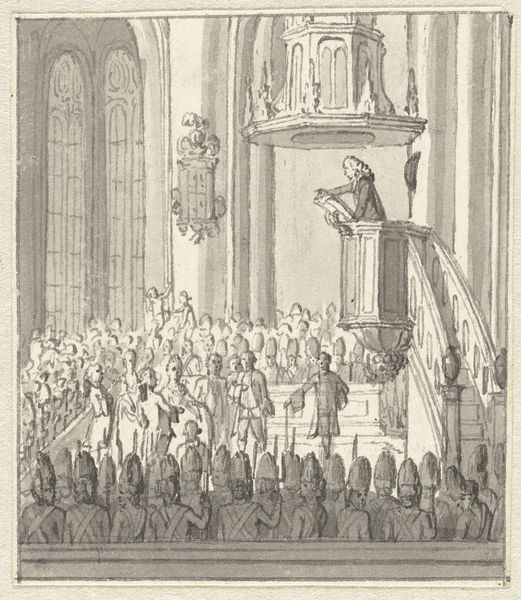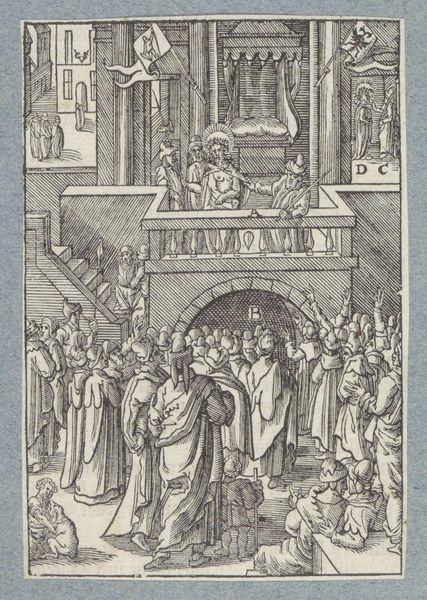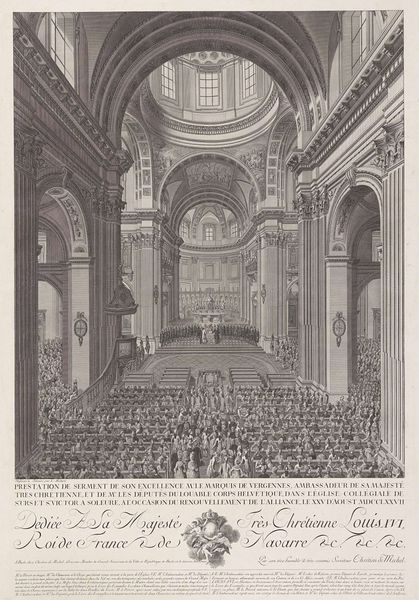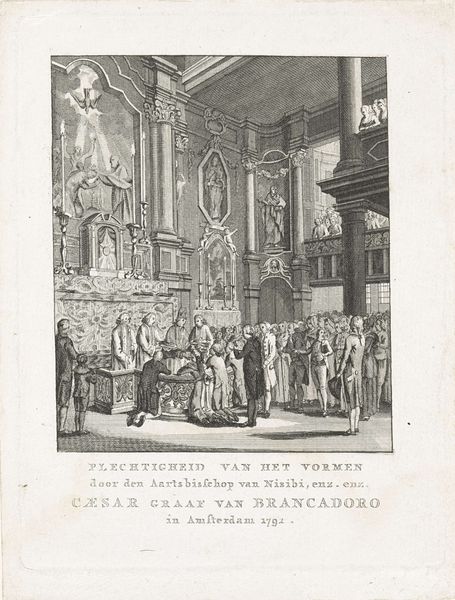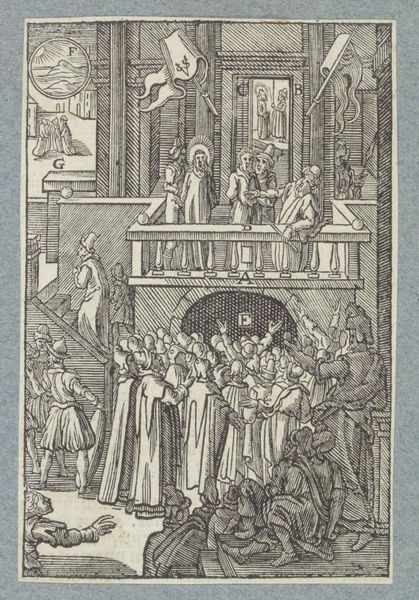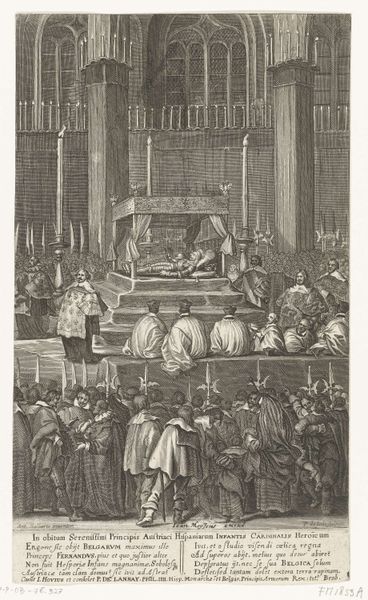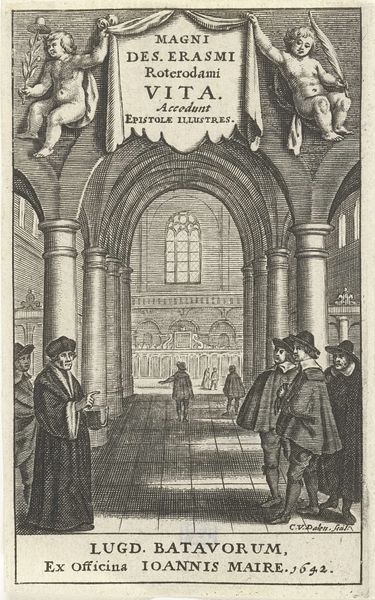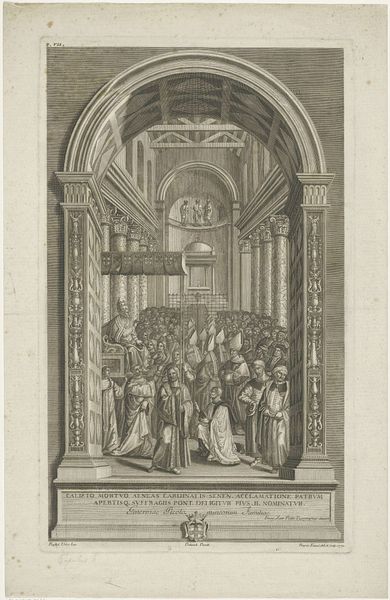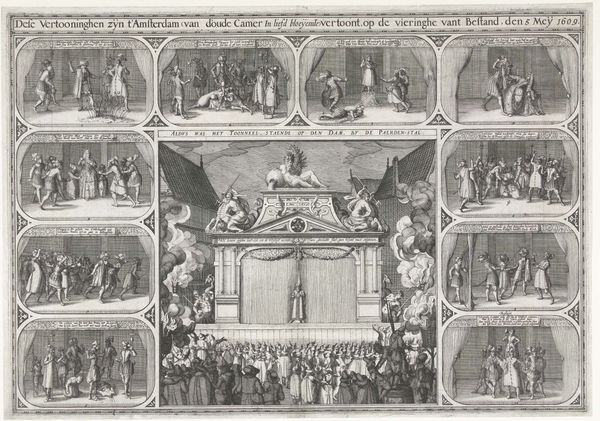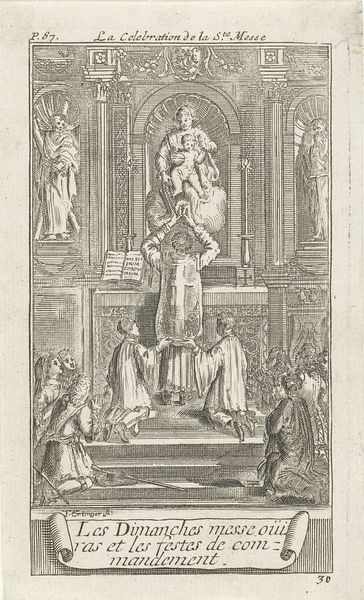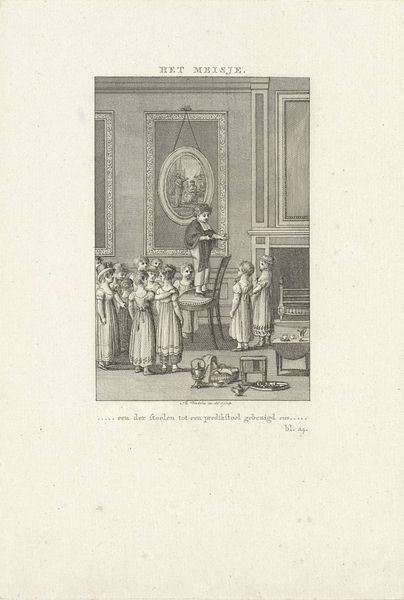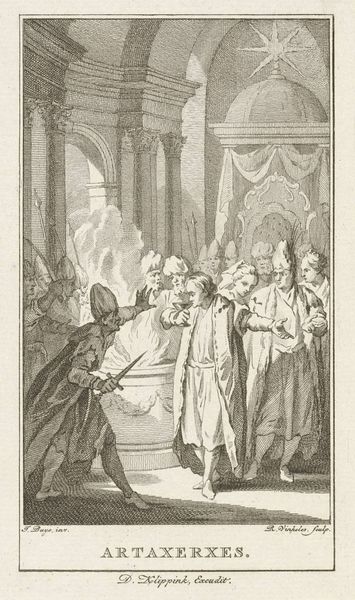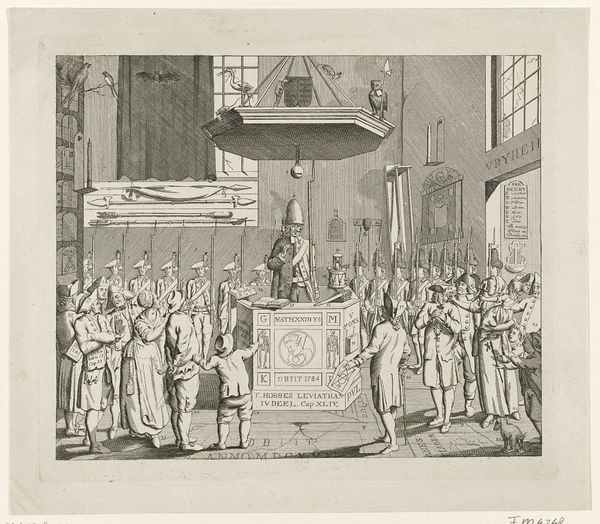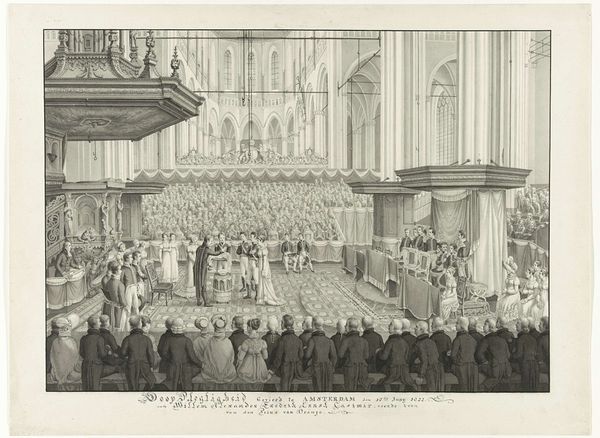
print, engraving, architecture
#
historical design
#
baroque
# print
#
old engraving style
#
figuration
#
line
#
history-painting
#
engraving
#
architecture
Dimensions: height 336 mm, width 223 mm
Copyright: Rijks Museum: Open Domain
Editor: This engraving by Bernard Picart, titled *Interieur van een Armeens-apostolische kerk*, or Interior of an Armenian Apostolic Church, dates to 1733. It depicts a church interior filled with people, and I find myself drawn to the division of space, particularly the separation of the cloaked women from the altar. How do you interpret this work? Curator: I see it as a representation of power dynamics within a specific socio-religious context. Consider the position of these women – cloaked, kneeling, and segregated. Picart, though perhaps not intentionally, captures the spatial control exerted within religious institutions, a control often intersecting with gender and tradition. What strikes you about this separation? Editor: I hadn't thought about it in terms of power. It felt more observational to me initially, but you’re right. There’s a clear hierarchy expressed here, not just in the physical placement of people but also in their attire and posture. What historical context informs this depiction? Curator: The 18th century was a period of both religious observance and growing Enlightenment ideals. While the scene portrays Armenian Apostolic traditions, a close reading also prompts us to question the societal norms embedded within those traditions. Picart’s work provides a window into a community navigating faith and societal expectations, including very clear visual prescriptions of gender. How might this image resonate with contemporary conversations about gender and religion? Editor: It makes me think about how religious spaces continue to grapple with inclusivity. Even now, we see debates about women’s roles and visibility within different faiths. I appreciate how you’ve framed it; it’s not just a historical document, but a visual text that speaks to ongoing issues. Curator: Exactly. And it's through such visual texts that we gain a nuanced understanding of both the past and present struggles surrounding identity, belief, and power. It makes me curious to know what further reflection on this image can bring! Editor: This has completely changed how I see this print. I thought it was just a rendering of a church service. Now I can really see all the nuances!
Comments
No comments
Be the first to comment and join the conversation on the ultimate creative platform.
